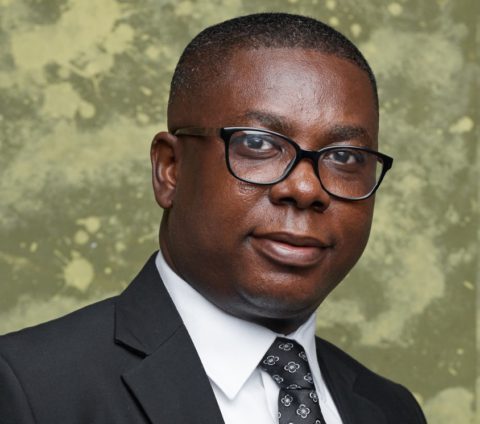The Economic Adviser and Spokesperson to the Vice President, Dr. Mahamudu Bawumia, has said the Covid-19 pandemic exposed some of the systemic weaknesses in the Ghanaian economic architecture.
That, according to Dr. Gideon Boako, “taught us the need to build an economy that can withstand external shocks.”
Dr. Boako was speaking at the GRASSAG Week Celebration at the University of Energy and Natural Resources in Sunyani themed: "The Role of Postgraduate Students in Government’s Economic Recovery Program Post Covid-19."
“…Our continued reliance on imported goods for consumption is not sustainable in the long term; the slow pace of our movement to mechanised agriculture presents huge challenges; the inability of the informal sector to formalise its business activities to mention a few, are all significant gaps that need to be addressed as a matter of urgency,” he said.
He added that the country’s ability to respond to the aforementioned challenges will go a long way in helping build vibrant economy capable of withstanding external shocks such as COVID-19.
Appreciating the catastrophic effects of pandemics such as COVID-19 on growing and developing economies such as Ghana’s, Dr. Boako said: “It is very evident that a time such as this requires innovation, creativity, entrepreneurship and a rekindling of the Ghanaian spirit of perseverance and a general belief in the can-do spirit of the youth. We need the can-do spirit and the ingenuity of the youth to rise up to the occasion.”
Time to industrialise
Moving forward, Dr. Boako said the bedrock of a strong local economy is industrialisation and that the evidence shows that industrialised countries have higher GDPs as against non-industrial economies. Industrialisation, he argued enhances the employment outcomes for the youth whilst contributing significantly to the GDP of the country through consumption and exports. Again, he noted that in times of external shocks, locally produced goods provide the buffer to sustain national economies, adding value to local supply chains and also improving local revenues.
“During the pandemic, we are all aware how Personal Protective Equipment (PPEs) became necessities for survival. We also witnessed how it took local industries a while to respond to demands for these essentials. This affirms the need to expedite our efforts to build local industries responding to the local needs of its citizens,” he stated.
Post COVID-19 era requires immense creativity
Describing the graduates as critical to the country’s economic recovery, Dr. Boako said the post-COVID-19 era requires immense creativity.
“Postgraduate students are trained to be innovative. You are expected to come up with ideas turned into research to advance the course of humanity and the country's socio-economic transformation. The experience of COVID-19 has taught us to be innovative in creating our own spaces within the broader economy,” he stated.
Latest Stories
-
Bar Association should encourage every lawyer to take on some pro bono work – Justice Amaleboba
17 minutes -
Trailer for Ghana’s first kids podcast ‘Best Girlfriends’ premiered
21 minutes -
Ghana to host rescheduled WAFU B U20 Boys Cup in July 2025
48 minutes -
One thousand young professionals to get mentoring from FMCG Incubation Programme
52 minutes -
Producer Price Inflation falls sharply to 10.25% in May 2025, lowest since November 2023
1 hour -
Choosing the right IT management partner and maximising the relationship (Part 2)
1 hour -
MP’s role is about representation, not educational qualifications – Justice Amaleboba
2 hours -
Analysis: Fitch upgrade signals turning point for Ghana’s economy, but risks persist
2 hours -
AbibiNsoma Foundation and FIDEP Foundation call for democratic oversight of emerging climate technologies, supports global non-use agreement on Solar Geoengineering
2 hours -
Costly rollover contracts to sink Ghana’s troubled cocoa sector even deeper
2 hours -
The NSS Scandal: Here’s why the new DG’s defence of ghost names digital platform/metric app is shocking
2 hours -
Standard Chartered empowers next generation of girls to embrace their periods proudly
2 hours -
‘You can’t intimidate me!’ – Ahiafor clashes with Afenyo-Markin
2 hours -
Review Supreme Court’s jurisdiction before capping judge appointments – Justice Amaleboba
2 hours -
Kumasi to undergo major clean-up ahead of Eswatini King’s royal visit
2 hours

